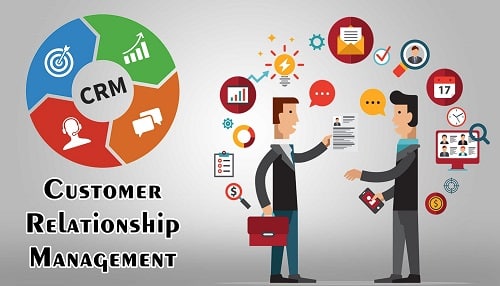Customer relationship management (CRM) is an essential aspect of any business, particularly in the e-commerce industry. The success of an e-commerce business largely depends on its ability to attract, engage, and retain customers. With the increasing competition in the e-commerce space, businesses need to leverage the right CRM tools and strategies to streamline their customer engagement processes.
In this article, we will explore the basics of CRM for e-commerce businesses and discuss how it can help streamline customer engagement. We will cover the following topics:
What is CRM?
CRM stands for Customer Relationship Management. It is a strategy and a set of tools that businesses use to manage and analyze customer interactions and data throughout the customer lifecycle. The primary goal of CRM is to improve customer satisfaction, retention, and loyalty while also increasing sales and revenue.
Why is CRM important for E-commerce?
In the e-commerce industry, where customers don’t have a physical store to visit, it’s crucial to provide an excellent customer experience to build trust and loyalty. CRM tools help e-commerce businesses capture and analyze customer data, allowing them to create personalized and relevant experiences for each customer.
How does CRM help streamline customer engagement?
CRM helps e-commerce businesses streamline customer engagement by centralizing customer data and interactions. With a CRM system, businesses can access customer data, including past purchases, browsing history, and customer support tickets, in one place. This information can help businesses personalize customer experiences, create targeted marketing campaigns, and provide more efficient customer support.
Benefits of CRM for E-commerce
Implementing a CRM system can offer several benefits for e-commerce businesses, including:
- Better customer insights: With a CRM system, businesses can gain deeper insights into customer behavior and preferences, allowing them to create more personalized experiences and targeted marketing campaigns.
- Increased customer satisfaction: By providing personalized experiences and efficient customer support, businesses can increase customer satisfaction and loyalty.
- Improved sales and revenue: By streamlining the sales process and creating targeted marketing campaigns, businesses can increase sales and revenue.
Types of CRM for E-commerce
There are several types of CRM systems available for e-commerce businesses, including:
- Operational CRM: This type of CRM focuses on automating and streamlining customer-facing processes, such as sales, marketing, and customer support.
- Analytical CRM: Analytical CRM focuses on analyzing customer data to gain insights into customer behavior, preferences, and trends.
- Collaborative CRM: Collaborative CRM focuses on improving communication and collaboration among different departments within a business, such as sales, marketing, and customer support.
Choosing the Right CRM for E-commerce
Choosing the right CRM system can be a daunting task for e-commerce businesses. To choose the right CRM system, businesses should consider the following factors:
- Business needs: Businesses should identify their specific CRM needs, such as customer support, sales automation, or marketing automation.
- Budget: CRM systems can range from free to several thousand dollars per month. Businesses should consider their budget when selecting a CRM system.
- Integration: E-commerce businesses should select a CRM system that can integrate with their existing e-commerce platform, payment gateway, and other tools.
Conclusion
In conclusion, CRM is an essential tool for e-commerce businesses looking to streamline their customer engagement processes. By leveraging the right CRM system, businesses can gain deeper insights into customer behavior, create personalized experiences, and improve customer satisfaction and loyalty. When selecting a CRM system, businesses should consider their specific needs, budget, and integration capabilities.
FAQ
Q: What are some of the benefits of using a CRM system for e-commerce businesses?
A: A CRM system can offer several benefits for e-commerce businesses, including better customer insights, increased customer satisfaction, and improved sales and revenue.
Q: What are the types of CRM systems for e-commerce?
A: The types of CRM systems for e-commerce businesses include operational CRM, analytical CRM, and collaborative CRM. Operational CRM focuses on automating and streamlining customer-facing processes, while analytical CRM focuses on analyzing customer data to gain insights into customer behavior and preferences. Collaborative CRM focuses on improving communication and collaboration among different departments within a business.
Q: How can a CRM system help improve customer engagement?
A: A CRM system can help improve customer engagement by centralizing customer data and interactions, allowing businesses to create personalized experiences and provide more efficient customer support. With a CRM system, businesses can access customer data, including past purchases, browsing history, and customer support tickets, in one place, and use this information to create targeted marketing campaigns and personalized experiences for each customer.
Q: What factors should e-commerce businesses consider when selecting a CRM system?
A: E-commerce businesses should consider their specific CRM needs, budget, and integration capabilities when selecting a CRM system. They should identify their specific CRM needs, such as customer support, sales automation, or marketing automation, and select a CRM system that can meet those needs. They should also consider their budget and select a CRM system that fits within their budget. Finally, they should select a CRM system that can integrate with their existing e-commerce platform, payment gateway, and other tools.
Q: Can small e-commerce businesses benefit from using a CRM system?
A: Yes, small e-commerce businesses can benefit from using a CRM system. CRM systems are available at various price points, including free options, making them accessible to businesses of all sizes. By using a CRM system, small e-commerce businesses can gain deeper insights into customer behavior, create personalized experiences, and improve customer satisfaction and loyalty.
Q: How can e-commerce businesses ensure that they are using their CRM system effectively?
A: To ensure that they are using their CRM system effectively, e-commerce businesses should regularly review and analyze their customer data to gain insights into customer behavior and preferences. They should also use this data to create personalized experiences and targeted marketing campaigns. Additionally, businesses should regularly train their employees on how to use the CRM system and encourage them to use it consistently to capture and analyze customer data.

